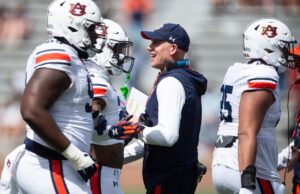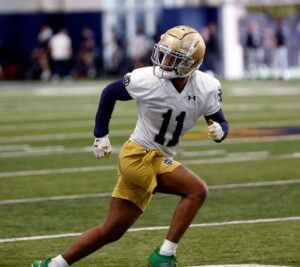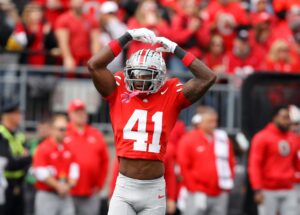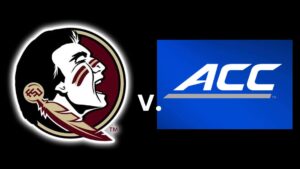When you go through journalism school, you are always taught you do not make yourself part of the story. Unless it is critical to the telling of the narrative, (and it rarely is), it is not about you. In holding true to that, this is not so much asking questions about any individual at Last Word on College Football. It is, however, a necessary look at an issue involving sports media and the schools we cover, as prompted by an unfortunate turn of events in college basketball in the last few days.
Bradley; It’s Not Our Job
The Media Protagonists
Since many of us first started our journalism endeavors decades ago, the industry has both evolved and devolved. Social media, blog sites, the fall of the traditional newspapers, fan boards, and even the new digital media sites already changing are all part of the equation. From there, you throw in schools and their need to manage their branding for their athletic programs. Some are savvy when it comes to the use of new media. Others are generations behind and struggle not only to properly promote who and what they are, but how to properly utilize working media in the process.
The Onset
What brings us to this conversation at all? It may seem odd for a national college football site to be using a basketball kerfluffle as the object of its ire, but stay with us here. Media access is an ongoing topic at any journalistic endeavor, whether they cover sports, politics or the local city government. What is your role in the coverage? How close can you get in order to provide significant coverage of the subject while still maintaining appropriate professional distance? The subject comes to the forefront thank to the Sports Information Department at Bradley University. The Braves basketball team was on its way to winning the Missouri Valley Conference championship for the first time since 1988 and earning a spot in the NCAA tournament.

The Culprit
Dave Reynolds is not a kid who started a blog site last week for the purposes of constantly haranguing the program. He is a paid professional journalist. He writes for the Peoria Journal Star and has covered Bradley for 29 years. Twenty-nine years. Long before any of the current players were born, Reynolds was on the job, covering the team these kids now play for. He is the three-time Illinois Sportswriter of the Year. That is no small feat for a writer working for a newspaper that pales in size compared to some of the big city publications. He is as legitimate as they come.

But as the players started meeting with individual reporters, a program staffer near half his age pulled Reynolds aside and told him he was not welcomed there and would not be allowed any interviews. His crime? Reynolds says in the PSJ, he was told by an athletic department staffer, “You don’t promote the Bradley brand, and basically we don’t want you here.” Message delivered. Sycophants, stenographers and cheerleaders posing as reporters are the only one’s welcome. “You don’t promote the Bradley brand.”
Reynolds was now prohibited from the type of access necessary to do his job, because he was not enough of a booster in his coverage. Did they want him to just re-run their press releases? Did they want him to never ask legitimate questions? Hey, the team started the season 0-5. There were plenty of questions to be asked by anyone who calls themselves a reporter. And, to be blunt, you’re Bradley. Be glad for the coverage at all. Other than a few games on cable at obscure times, most of the sports world is not paying much attention to you most of the year. Reynolds was there doing his job every day.
The school, responded in a statement published on Twitter. “We discussed the issues that led to the policy change with Peoria Journal Star Sports Editor Wes Huett and the level of access has remained consistent for the last several weeks. Our focus is on preparing for the NCAA Men’s Basketball Championship.”
Huett reported that it was never discussed that Reynolds would not be allowed access for interviews.
The Ties That Bind
Some of us at Last Word have experience working in, with, or covering smaller programs. More often than not, they bend over backwards to provide media access. They understand the coverage is a positive for them. Smaller bowl games that we have covered over the years, make it easy to get credentialed and provide access. Their job is to sell the brand, via getting the name out there. Ours is to cover it, objectively and fairly. When both sides do their job, the relationship goes off without a hitch.
Many on the staff here cover bigger programs on a daily basis. By its very nature, the access is more difficult. The school has more reporters seeking to cover the team(s). That includes the occasional major national television outlets, who of course always get a “yes” from the media relations department, because it is good for the school. Bigger programs also often have coaches who really would prefer just to coach and their time with the media is an undesired necessity. That does not make it is easy on the media relations staff either. Trying to do their job while also convincing a less-than-willing coach to be more cooperative is not an easy juggle to keep going.
New Media, New World
For some of the dinosaurs in the working media, change is not easy. The job used to be covering a sporting event, interview the players and coaches afterwards, write the story, and it would publish to be thrown on everyone’s doorstep the next morning.
Now it is about live blogging during the event, and a quick re-cap afterwards to include anything not previously covered. Throw in some quotes after the game and the job is done. The hard copies of the publication are dwindling in size and scope over the last decade, but there is still a purpose to the morning printed version as well.
As sports coverage merged into a new digital media world, everyone had to learn to adapt or become irrelevant. And the change is always a work in progress. Even as major brands like Fox Sports built their digital footprints, they soon enough decided reporters, any reporters, were unnecessary. They could run the site with interns posting videos from the field or the locker room and call it a story. ESPN.com still has premier writers, if you are willing to pay to read them. But if you want free content, you get videos with no real context. Newspapers with daily beat coverage struggle to manage how to exist with or without pay walls in a compressed advertising environment.
The new media age has also enabled universities to better own their branding initiatives. They don’t need to worry about press releases going to traditional media outlets and pray something gets covered. They can be their own media outlets with tweets, and Facebook/Instagram posts.
At places like Last Word, there are not the resources of an ESPN or Fox Sports, and there is not the daily beat-style coverage of a daily newspaper. We rely on our own style of deep-dive analysis to differentiate ourselves. But we have a role in the bigger picture, as do other media outlets, as does Dave Reynolds.
Full Circle
Saturday afternoon, Bradley apologized to Reynolds, and his newspaper, and restored full access to the team for him. Associate Athletic Director Bobby Parker issued a statement. “The Bradley athletics staff appreciates the importance of having a media presence presenting fair and accurate coverage. We recognize that the media is not responsible for promoting the Bradley brand and that was never our expectation. We did not handle this situation appropriately and for that we apologize.”

They had been deluged with the thing that hurts them the most…bad publicity. The story caught steam early Saturday in new media circles. The school rightfully felt shame, and did the only thing it could do. It never should have come to that. It should not in the future.
This is not about Last Word, or ESPN, or Fox Sports, or any specific beat coverage in any local market. Really it should not be about Dave Reynolds, but it kind of has to be. Without the media sites and reporters we are left with school messages, and the rumors promulgated on fan boards with nothing in between.
As everyone tries to negotiate their place in the ever-evolving media/sports landscape, a reporter, any reporter, being deprived his/her ability to do their job because they do not “promote the brand,” should be bothersome to anyone who ever wants to read objective media analysis. Anything short of that is a grotesque slap in the face at an industry that has been around longer than most of the teams getting covered.
Editor’s Note: Tony Siracusa is a Managing Editor for Last Word on College Football and covers UCLA football. He is a voting member of the Football Writer’s Association of America on the panels for the Outland Trophy and Bronko Nagurski Awards.






